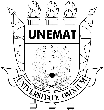Banca de QUALIFICAÇÃO: NELTON RICARDO DIAS
Uma banca de QUALIFICAÇÃO de MESTRADO foi cadastrada pelo programa.DISCENTE : NELTON RICARDO DIAS
DATA : 09/03/2022
HORA: 14:00
LOCAL: UNEMAT via remota
TÍTULO:
Teaching History and History of Canarana-MT: Experiences of Migrants and the History of the Place (1960-1972)
PALAVRAS-CHAVES:
Teaching of History. Oral History. History of the Place. Canarana/MT
PÁGINAS: 93
GRANDE ÁREA: Ciências Humanas
ÁREA: História
SUBÁREA: História do Brasil
ESPECIALIDADE: História Regional do Brasil
RESUMO:
The teaching of History in Brazil has undergone significant changes in its form, content and objectives since its first format, in the early 19th century, until the second decade of the 21st century. Its objectives ranged from the consolidation of the patriotic feeling, through the formation centered on the student of the Pedagogia Nova, by the formation of a passive workforce of the Pedagogia Tecnicista and, finally, by the development of the autonomous thinking of the student present in the BNCC. Teacher training, school organization and the list of contents covered largely reflect the objectives proposed in each of the periods. In the current educational context, the need to discuss the historicity of each subject in their context is highlighted. Thus, the importance of works related to memory and Oral History is highlighted as a subsidy for the construction and study of the History of the Place. This work is dedicated to building a possibility of approach to the study of the History of Canarana/MT in the school context. In general, the History of Canarana has been built and presented by the official media as a result of the colonization promoted by small farmers from Rio Grande do Sul who settled in unoccupied or underused land and built the city as it is today. The use of the Oral History research methodology can add relevant elements to the construction of the History of Canarana, since it provides an opportunity to investigate the motivations, perceptions and trajectories of people, non-southern migrants, who are part of the diversity present in the formation of the society of Canarana and who, many times, are relegated to some supporting role in the official narratives of History. Realizing that the ways of doing History, including in the school context, have varied a lot in recent centuries, the reflection on these changes cannot escape the historian's craft. In a context of plurality of ideas, the teaching of History is also seen as plural and diverse. And, in line with the development of educational proposals found at the BNCC, the use of Oral History for the study of issues related to Memory and the History of Place, is one of the possibilities that meets the idea of autonomy of thought of the student and the production of their own history and identity.
MEMBROS DA BANCA:
Interno - 39231003 - CARLOS EDINEI DE OLIVEIRA
Interno - 278736001 - FERNANDA MARTINS DA SILVA
Externo ao Programa - 31741001 - LEOMAR RIPPEL
Interno - 59400001 - MARIA DO SOCORRO DE SOUSA ARAUJO



